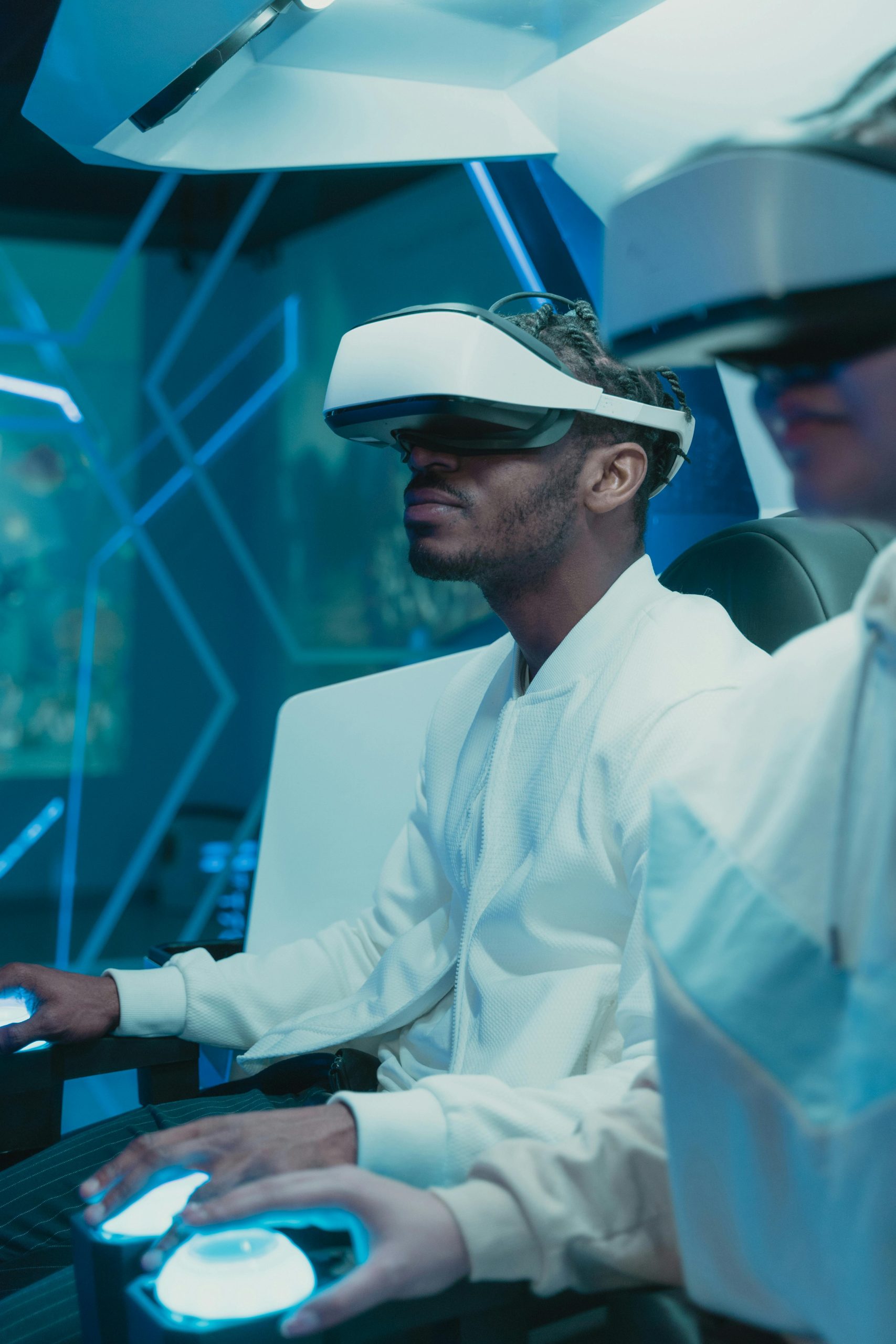I am just thinking. Maybe in the near-future winter of 2032, the world’s greatest athletes will not gather in the bustling streets and gleaming stadiums of Brisbane but rather convene in the vast, virtual realm of the metaverse. The decision to host the Olympics in this digital domain was a bold and unprecedented move, ushering in a new era for the iconic international competition.
As spectators don their VR headsets and step into the Metaverse, they’ll be greeted by a dazzling, immersive world that seamlessly blends advanced 3D graphics, real-time motion capture, and haptic feedback. The traditional Olympic venues have been meticulously recreated, from the sleek, angular architecture of the main stadium to the verdant landscapes of the outdoor event spaces. But these digital arenas have been imbued with a sense of limitless possibility, transcending the constraints of the physical world.
The athletes themselves will traverse this virtual landscape with an uncanny sense of realism. Their movements, captured by a vast array of sensors, will be translated into the digital space with pinpoint accuracy, allowing spectators to witness each explosive sprint, gravity-defying leap, and precise gymnastics routine as if they were standing mere feet away. And with the integration of haptic technology, fans will be able to feel the impact of every stride and the tension of each muscle flex, creating an unprecedented level of visceral engagement.
But the metaverse Olympics will offer more than just a faithful recreation of the physical Games. The virtual environment will enable new forms of competition and spectacle that would be impossible to achieve in the real world. Imagine a swimming event where athletes race through a simulated underwater realm, their movements propelled by the currents of a digital ocean. Or a track and field competition that takes place on a gravity-defying course that twists and turns through the clouds, challenging the very limits of human athleticism.
These metaverse-exclusive events will not only captivate audiences, but also push the boundaries of what is possible in the realm of sports and entertainment. The integration of advanced technologies like AI, machine learning, and procedural generation will allow for the creation of dynamic, ever-changing virtual landscapes, ensuring that each edition of the metaverse Olympics offers a fresh and awe-inspiring experience.
Of course, the idea of the Olympics taking place entirely within a virtual metaverse may seem like something straight out of a science fiction novel. But with the breakneck pace of technological advancement, who’s to say this seemingly far-fetched concept won’t become a reality sooner than we think?
Sure, there are plenty of logistical and regulatory hurdles that would need to be cleared before the International Olympic Committee even considers such a drastic shift. But given the growing popularity of online gaming and the metaverse, it’s not too far-fetched to think that a “Metaverse Olympics” could eventually become a reality.
In the meantime, our BPO team is here to support all the avid online gamers out there, providing the lightning-fast customer service and tech support you need to keep your competitive edge. So the next time you need a little assistance, just give us a call – we’ll have your customers back in the game in no time.













![Customer care agents at [Your BPO Name] working diligently in the office. The image shows a vibrant team engaged in providing excellent support, with agents answering calls, handling inquiries, and collaborating to solve problems. The workspace is filled with energy and focus, reflecting their commitment to delivering top-notch service and ensuring client satisfaction](https://stories.telesky.co.ke/wp-content/uploads/2024/07/Monday-Agents-300x225.jpeg)






+ There are no comments
Add yours